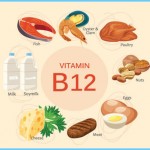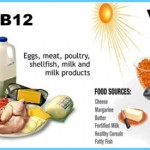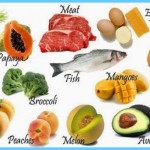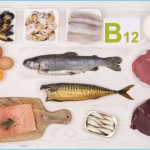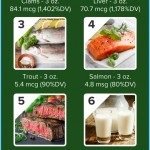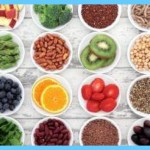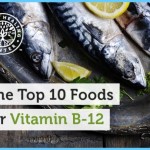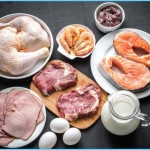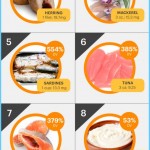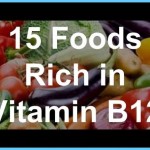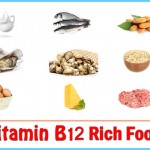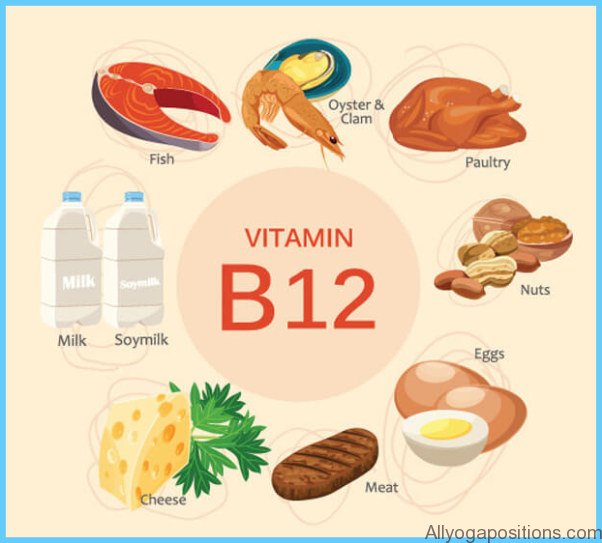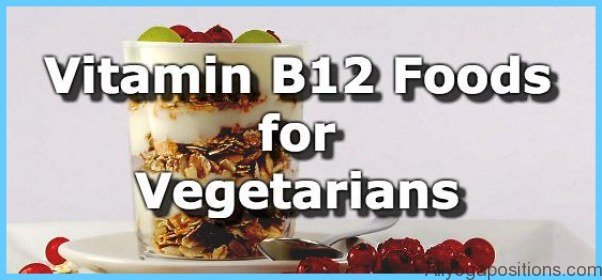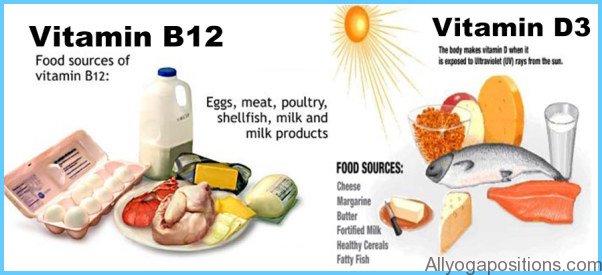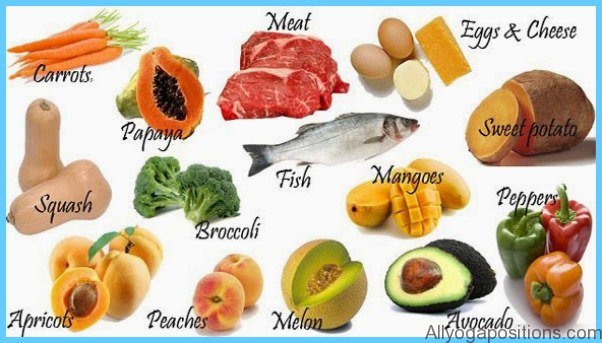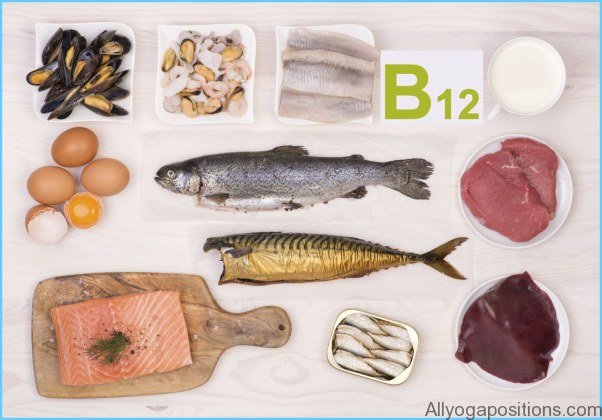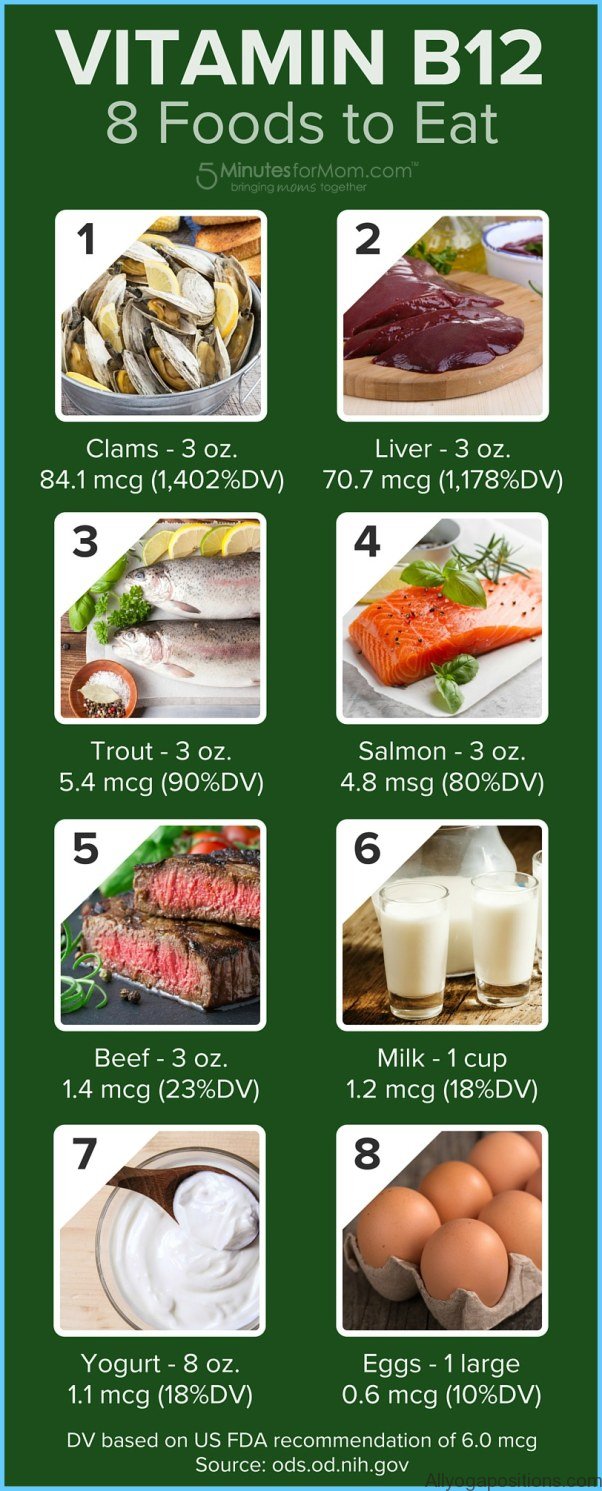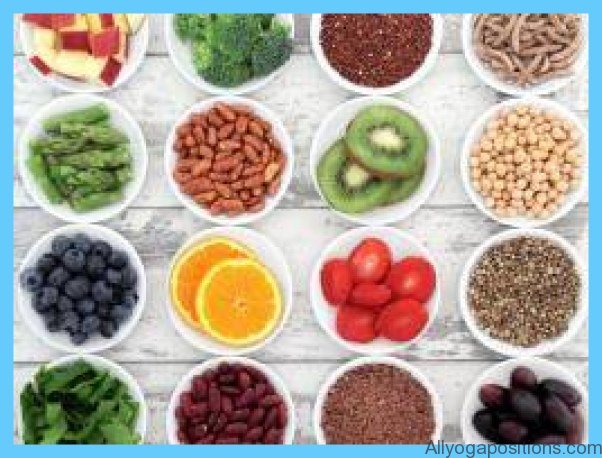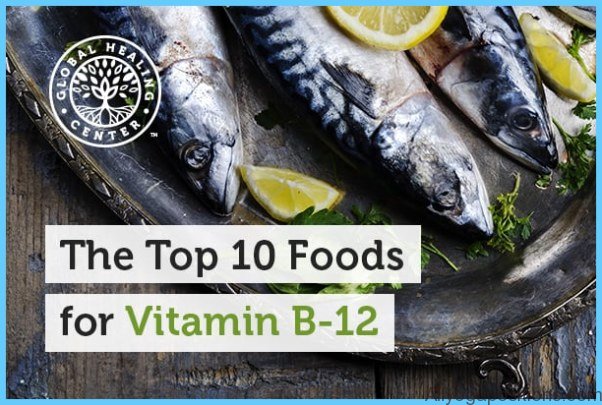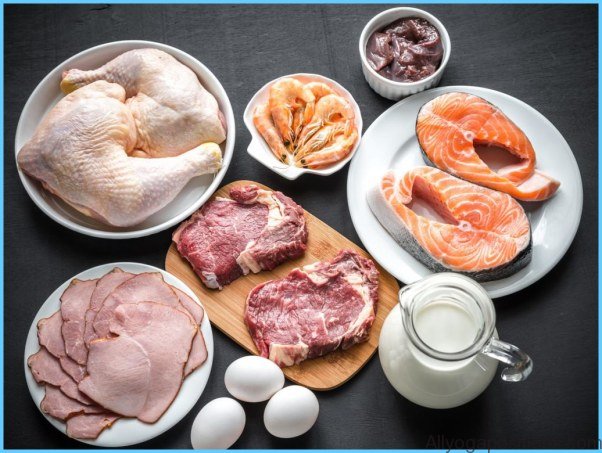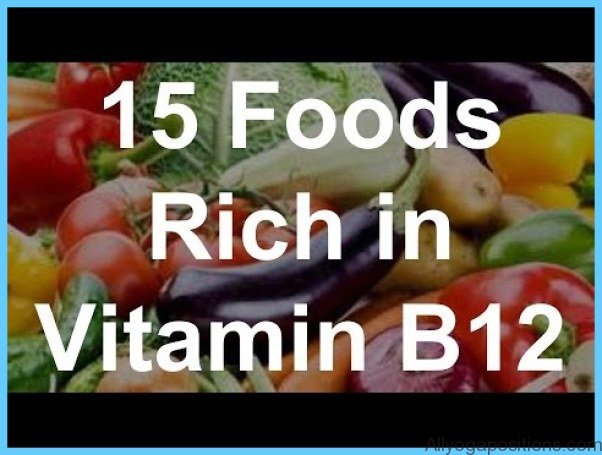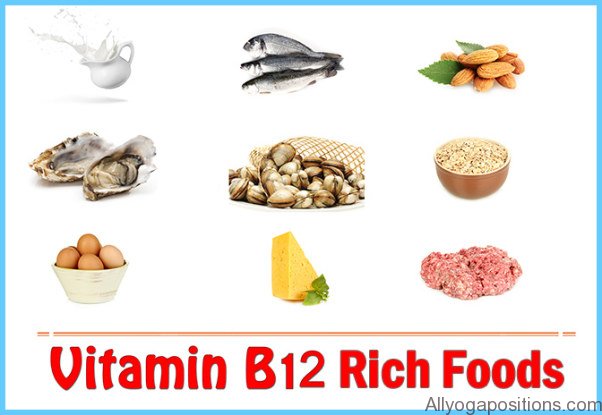FOOD (MICROGRAMS)
Beef, cooked, 3 oz (90 g) 2.8 mcg
Pork, center loin, cooked, 3 oz (90 g) 0.5 mcg
Poultry breast, cooked, 5 oz (150 g) 0.3 mcg
Tuna, canned and drained, 3 oz (90 g) 2.5 mcg
Mussels, cooked, 3 oz (90 g) 20 mcg
Milk, 1 cup (250 ml) 0.9 mcg
Yogurt, 3/4 cup (175 ml) 0.9 mcg
Cottage cheese, 1%, 1/2 cup (125 ml) 0.7 mcg
Cheddar cheese, 1.5 oz (45 g) 0.3 mcg
Egg, 1 whole 0.6 mcg
Fortified soy beverage, 1 cup (250 ml) 1.0 mcg
Fortified rice beverage, 1 cup (250 ml) 1.0 mcg
Nutrient Values of Some Common Foods, Health Canada, Ottawa, 1999.
B12 in Foods VITAMIN B12 Photo Gallery
B12 Supplements
If you are a strict vegetarian who eats no animal products and you don’t drink a fortified soy or rice beverage, I strongly recommend a B12 supplement. In fact, anyone over the age of 50 should be getting their B12 from a supplement or fortified foods. That’s because up to one-third of older adults produce inadequate amounts of stomach acid and are inefficient at absorbing B12 from food.
If you take certain medications you should consider taking extra B12 in the form of a supplement. If you suffer from reflux or ulcers and take acid blockers (e.g., Tagamet®, Zantac®, Pepcid®) your body may not absorb enough B12 (as well as iron). Metformin®, used to manage type 2 diabetes and polycystic ovary syndrome, can also deplete B12 levels. If you take these medications, your doctor should monitor your blood periodically for signs of anemia.
To get your B12, I recommend a good multivitamin and mineral supplement or a B complex supplement that contains the whole family of B vitamins. If you take a single B12 supplement, take 500 to 1000 micrograms once daily.
If you are taking a high-dose B12 supplement to correct a deficiency, don’t take it with a vitamin C pill. Large amounts of vitamin C can destroy B12. Take your vitamin C supplement one hour after you take your B12.

